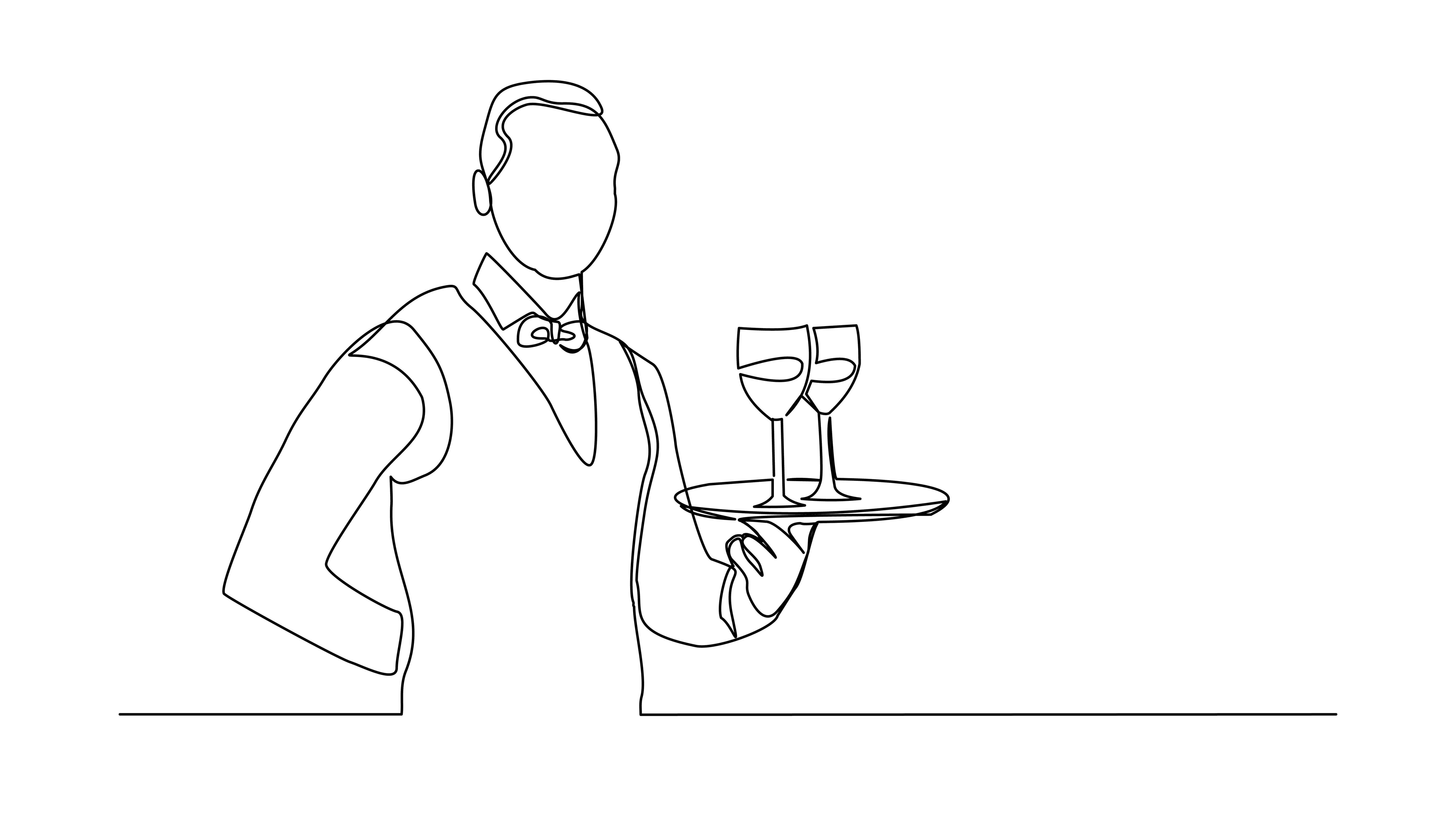Waiting Staff To Come Out Of The Shadows And Take Centre Stage
Services businesses need to provide personalised, interactive and immersive experiences.

The world of hospitality, once a thriving powerhouse, has had to navigate several era-defining challenges in recent years. From Brexit to the Covid-19 pandemic, ongoing staffing shortages, supply chain problems, and price hikes, the industry has showcased its ability to confront adversity head-on.
Rising expectations
The purpose of the hospitality and events industries is to keep people happy. But putting a smile on guests’ faces is no longer enough. Rising costs mean customers want to be thrilled and delighted.
Customers expect a certain level of service and convenience as standard. But if they’re going to part with their money now, they want more. In the events space we are seeing a demand for events that are bigger and better.
Those expectations are heightened further by social media, where not much is left to the imagination. It used to be that guests had to rely on rumours and word of mouth. Today, they need only to open Instagram to see high-definition pictures of venues and food, forcing event organisers to work harder to create magical experiences.
Meanwhile, the demographic which has grown up with the rise of social media, millennials, now in adulthood, consistently champion experience over opulence. And this cultural shift presents an opportunity for hospitality companies to redefine the boundaries by doing something new.
Change the story
The human touch is a cornerstone of hospitality services. Culinary excellence and the ideal venue will always be crucial. But if waiting staff are lacklustre and uninterested no event is going to pack much punch. It’s the people that often determine whether an event is remembered positively or not.
The secret to bringing more life to events and offering more value for guests lies with reinventing the role of waiting staff. Historically, the role was characterised by standing stationary holding trays of champagne and platters of canapés. Now, it should be about creating a sense of excitement and theatre — imagine animated waiting staff guiding attendees through open chef stations.
Guests gather and watch ingredients being infused, and canapes being crafted in real-time. Waiting teams offer insights into real-time culinary craftsmanship, the origin of dishes, local ingredient sourcing and fusion, flavour profile, and recipes to recreate at home.
We like to push boundaries at Camm & Hooper and we even have our guests go foraging for food in our nature gardens and living walls that we later grace our grazing tables with. This approach is hands-on, explorative, and sustainable and has resulted in unforgettable culinary experiences for guests.
Waiting teams can bridge the connection between guests and chefs. Interactions among guests, chefs, and front-of-house teams should be the cornerstone of crafting interactive and lasting impressions. The same holds true for beverages, where inventive drink stations transform waiting staff into storytellers.
The power of personality
This transformation will allow waiting staff to showcase their unique personalities and converse with guests as co-hosts rather than mere facilitators. Here, entertainment fuses with service.
Service providers should use this as an opportunity to tap into the hidden talents of their teams. Juggling, magic, dancing, singing, comedy — what other hobbies and talents lie hidden away that could add value and make the role of a waiter more enjoyable, attractive and a less thankless task? In an industry struggling to recruit, with the Office for National Statistics reporting 132,000 vacancies – 48% above pre-pandemic levels - , evolving the role of waiting staff could go some way to solving the problem.
A new era – personalised, interactive, and immersive
In an age when attracting and retaining customers and talent is harder, where social value is priority and where guests want more, silent, personality-less waiting staff must become relics of the past.
The onus is on events and hospitality companies to make a step-change by harnessing the human touch. This requires rethinking and widening the scope of the role of waiting staff and a collaborative exploration of the talents, aspirations, and strengths that they can bring.
Events and hospitality companies need to bolster capabilities to curate more personalised, interactive and immersive experiences, and make the hospitality profession attractive again.
Chris Hawkins is culinary director of Camm & Hooper.
Thanks for signing up to Minutehack alerts.
Brilliant editorials heading your way soon.
Okay, Thanks!

